The bus station in Pokhara was brimming with other tourists who were also Chitwan-bound. My baggage was secured against the bumpy ride and possible rain. Fresh-baked rolls and croissants rattled into paper covers were packed for breakfast; another one set aside for lunch. After I had settled down in one bus, I was told to take another one as this one didn’t have enough space. Going by the pretty co-passenger next to me – a ginger-haired German – I soon decided this inconvenience was a welcome hiccup. A sudden glow of happiness washed over me as I set off from Pokhara.
After homestays, bus rides are the closest you can get to be one with the locals. These journeys often give interesting insights about the people, their attitudes and temperaments. And some quite engaging photo-ops as well. The intermittent pee and tea breaks are often great opportunities to strike up new friendships. During one break I met David, a photographer from the UK who was pissing next to me (no, these stretches do not have public utilities). The next one, I was having tea sitting next to his wife, Alexander, a student. Making the ride further memorable was a little one with his own customised version of ‘Resam firiri’ accompanied by his ektara (‘Sometimes trekking, sometimes rafting, resam firiri…’).The road wound its way up through deep-cut gorges taking me eye-level with mountains cleared for terrace farming. The bus crossed over a dozen bridges named Tope, Rigdi, Mauree…till I lost interest. After five hours, I entered the leafy plains of the Terai which marked the beginning of the national park. True to a Terai, especially in a July, the monsoon was never far away and no sooner did I check into the Unique Wild Resorts, it began to pour.
Like most of the resorts in Chitwan, the Unique Resorts too was firm in its roots. It was built around the green with as little cutting down of trees as was possible. It was like a slice of the forest brought into your own backyard. I sat back, sipping my welcome drink, watching the rain. From the welcome drink, I moved on to a cup of tea, which became half a dozen, before the rain finally decided to recess.“Chitwan is from two words, ‘chit’ meaning ‘heart’ and ‘wan’ which is ‘forest’,” said Jog, the resort manager. He also told me serious stuff like ‘the Chitwan National Park is a standing testimony to successful nature conservation in southeast Asia’. And, ‘wild life covers around 10 per cent of the park area’.
He introduced me to Mahendra Chaudhary, a genuine nature lover, who works with local and national organisations to conserve the forest as well as to preserve local culture and traditions. Jog, was busy with some prior engagements (“I have to take an Italian lady out for sightseeing.” Definitely a valid reason, I agreed.) and put me to in charge of Mahendra who agreed to take me around and ply me with information. The Tharus formed 90 per cent of the indigenous population before Chitwan was declared a national park. However, today the tribe forms a minority at around 10 per cent of the population. This indigenous tribe built their houses with age-old wisdom. Their huts had walls made with elephant grass, available aplenty in the forest. This was then covered with mud and cow dung. The hollow space in between kept the hut cool even during the height of summer. Such techniques and tools used by the Tharu tribe were on display at the nearby Tharu Cultural Museum, a short walk from the village.
Inside the museum, I met another interested-looking visitor; Hillary Taylor was a palaeontologist from Canada.
“I really enjoyed the museum – it gives a lot of stuff to think about,” she said. Hillary was right. There was a lot of food for thought there. Ethical questions of coexistence of humans and preservation of Nature were being bandied about. I decided to give it some serious thought. But before that, I had to find a place of peace, and preferably, beauty. The best place would be by the banks of the meandering Rapti river.
The efforts by the government and the eventual peace paid off and Chitwan National Park was declared a Natural Heritage Site by UNESCO in 1984. Besides the Rapti, the Narayani and Reu rivers too flow through here. A rich and diverse ecosystem, consisting of a large variety of birds, mammals, reptiles and water animals abound here. But now, all I could see were the two-legged types, totting cameras. Tourists had gathered for the sunset which, on any given day, is nothing less than spectacular. Anywhere. Today with so many expectations riding high, it surely was going to be spellbinding. A brilliant dash of orange seared across an otherwise ponderous sky. The silhouettes got increasingly pronounced with every passing minute. The ever-faithful mirror – the lake – captured each changing nuance in its wake. Travels are generally occasions to introspect. The physical aspect of the journey is just one dimension. It is the trip you take inside, to look back, that enriches you as a person. Sunsets are that time of the day most suited for these inward journeys. What did I see today? How did they benefit me? Have I become a better person? More human? Questions you put to yourself and answer, for, if the next day is the same as today, you better stay at home.
Cultural shows are centuries of evolution in a capsule. Later that evening, I retired to the dark confines of a hall to watch some by the Tharus. The place filled up pretty quickly – the enthusiasm of the tourists reciprocated in the high energy levels of the ceremonies’ master. The performances were a tribute to the tribe’s sense of rhythm, stamina and skill. The dances combined martial abilities, split second timing and commendable flexibility. Understandably, many from the audience found the high energy levels irresistible and took to the stage to share some.


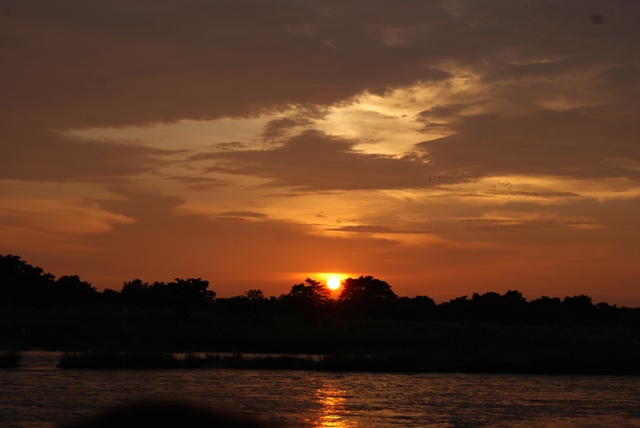
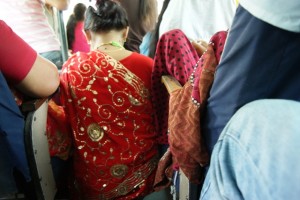
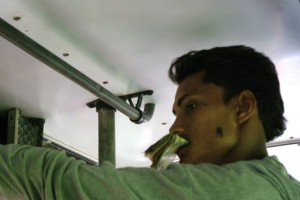
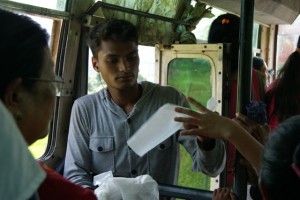
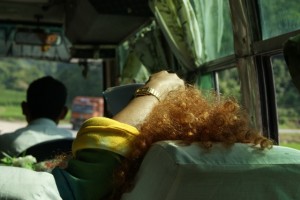
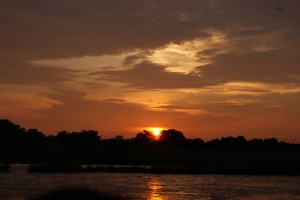

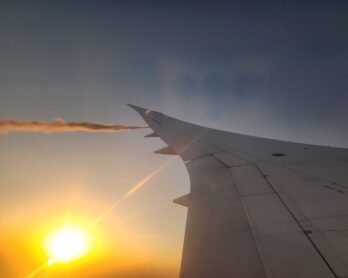
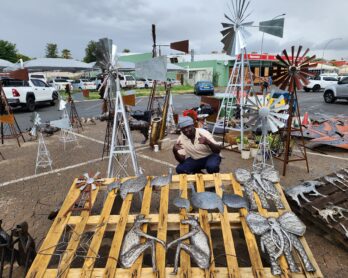



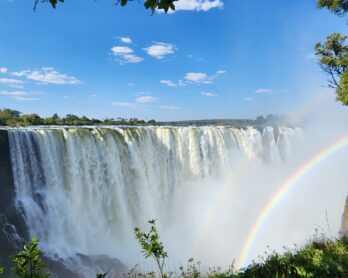
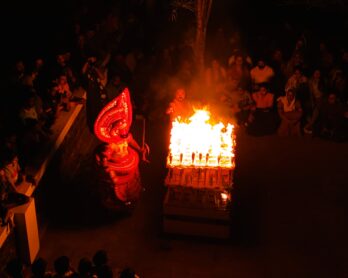
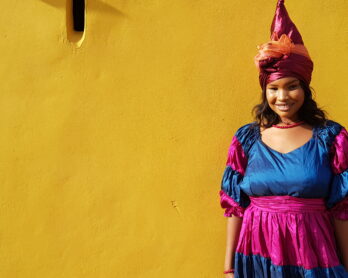
Do we still need to cross the rickety bamboo bridge by foot to enter Chitwan forest? Went way back in 1995. My first visit to a reserve forest and boy was I stumped or was I stumped! Would love to revisit sometime in the future again.
Depends on where you access the reserve from: I did it through a boat, so it was all slush and muck. Then trekking around I reached another access from a village – which was a ‘rickety bamboo bridge’. Yeah, you gotta do it again. Preferably summer – your chances of spotting big game are manifold then.